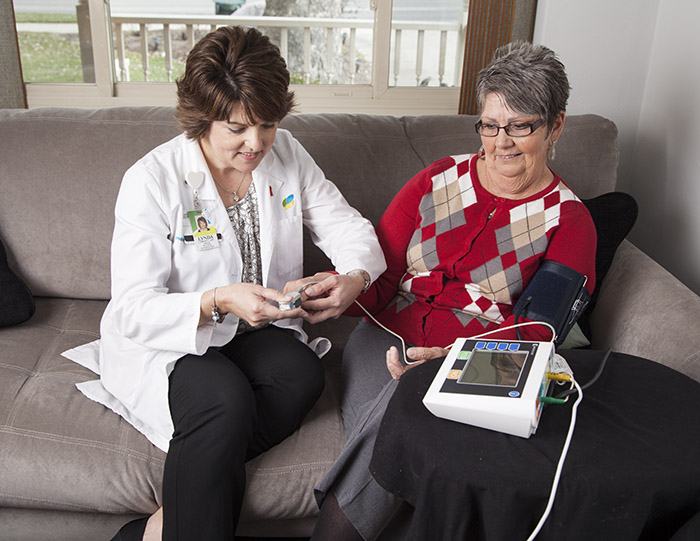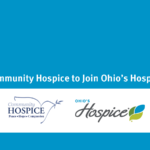
Heart Health Matters
During Heart Month, we offer insights into ways heart health can be improved.
Heart Health – Little Things Can Make a Big Difference
You don’t need to be overwhelmed by the idea of adopting a more heart healthy lifestyle, according to Ohio’s Hospice Cardiac Focused Care Clinician Lynda Weide, RN, MSN, CHPN. “Even small, incremental changes can lead to big success,” she says. We are all told to watch what we eat. What if today instead of a can of soda you substitute a bottle of water? Instead of grabbing an extra cookie or indulging in a donut, you could enjoy fresh berries or an apple. Every time you choose to reduce your sugar intake, you also choose to reduce weight and the risk of heart disease that comes with it.
On your next grocery trip, avoid the aisles loaded with processed foods, which themselves are loaded with emulsifiers, additives
And speaking of high blood pressure, Lynda notes that there are new standards in place for hypertension. “The standard for hypertension has been revised to a blood pressure reading of 130 over 80, so if your numbers are above that, you are considered hypertensive. Doctors are becoming more proactive in treating hypertension and encouraging lifestyle changes in order to reduce the risk of heart attack and stroke associated with high blood pressure.”
Lynda also suggests it’s important to know your family history for heart disease AND when it was diagnosed in family members. “If you have a family member who was diagnosed and treated at an early age, you need to be especially mindful of early onset symptoms and take steps to reduce your risk,” she warns.
Being active is important because your heart is a muscle and, like all muscles, is stronger when it’s put to use. Walking 30 minutes a day at least five times a week can have a huge impact on improving heart health. One recent study showed that sedentary people reap the greatest benefits when they begin to start moving regularly. Any physical activity – whether it’s walking, working out, yoga or dancing – that gets you breathing harder has heart health benefits.
It’s also important to keep your cool. Chronic stress, whatever the reason, causes elevated blood pressure and contributes to obesity. Monitor your reactions to stressful situations and consider if you are over-reacting. A big step toward reducing stress and anxiety may come with evaluating if the situation really warrants so much emotion.
Some alcohol is often cited as a healthy indulgence, but keeping it “modest” is a requirement for alcohol to be considered a benefit. If you can’t keep your alcohol consumption to less than two drinks (for men) or one drink (for women), your heart is better off if you imbibe in no alcohol at all.
Alcohol, bad foods and stress are all good to reduce, but here’s something you probably need MORE of – sleep. The later you go to bed, the more likely you are to make all of the other mistakes listed. The simple act of turning in earlier may be your first step toward improved heart health.
Author Profile
Latest entries
 Media ReleaseJanuary 1, 2024Community Hospice to Join Ohio’s Hospice Strategic Partnership
Media ReleaseJanuary 1, 2024Community Hospice to Join Ohio’s Hospice Strategic Partnership #CelebratingLifesStoriesNovember 21, 2023Priesthood, Shelters and Hospice Care: A Life of Service for Barbara Parini
#CelebratingLifesStoriesNovember 21, 2023Priesthood, Shelters and Hospice Care: A Life of Service for Barbara Parini News and UpdatesJuly 28, 2023Ohio’s Hospice Volunteer Experiences Hospice Care as a Loved One
News and UpdatesJuly 28, 2023Ohio’s Hospice Volunteer Experiences Hospice Care as a Loved One News and UpdatesJuly 19, 2023The Not-for-Profit Difference
News and UpdatesJuly 19, 2023The Not-for-Profit Difference

